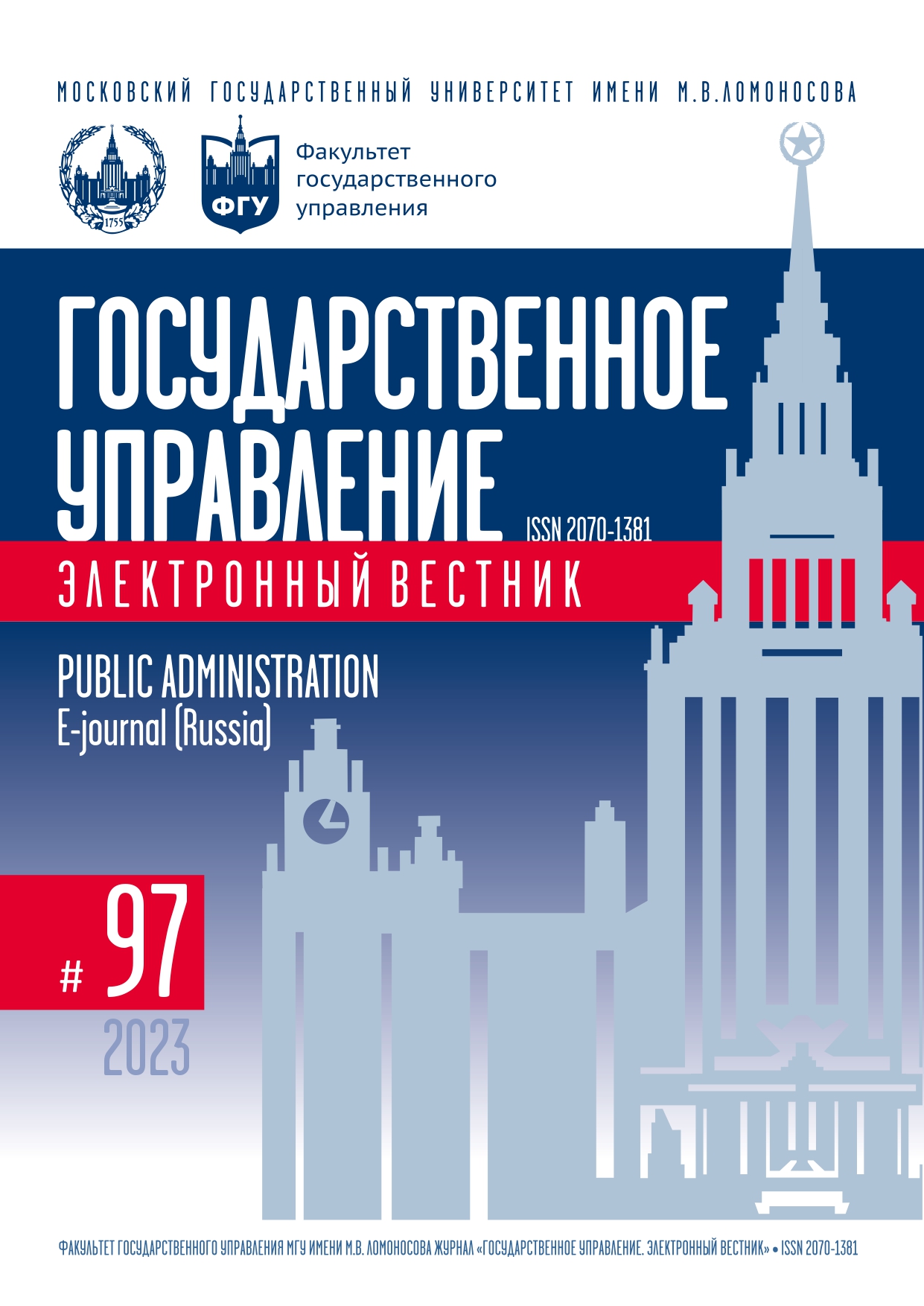Identification of Modern Industry Specialization of Far East Regions
Keywords:
Industry specialization, regional specialization, sectoral specialization, industry priorities, iversification, regional economy, Far EastAbstract
One of the factors that determines the strategic directions of the socio-economic development of the region is its industry specialization and the industry priorities formed on its basis. However, in strategic documents both at the federal and regional levels, the results of attempts to determine the priorities of industrial development of territories, including the Far East, contain methodological and substantive gaps. The first step towards the formation of priorities for regional industrial development includes the search and identification of the current portfolio of specialization. In this article the authors identified the current industry specializations of 11 regions of the Far Eastern Federal District, assessed the level of development of industries and characterized the regionals industry portfolios, using the approach of the Russian Cluster Observatory and Rosstat data for 2019–2021. It is determined that the specialization of the Far East is formed by 29 industries. These industries employ 34.5% of workers of the Far Eastern Federal District. The most widespread and developed ones are «Metal Mining» and «Coal Mining». The regions of the Far Eastern Federal District are «specialized» (not «multi-industry»), because they have small industry portfolios. The regions differ significantly in the number of specializations: the maximum — in the Republic of Sakha (Yakutia) (16 units), the minimum — in the Kamchatka Krai (5). The results of this research can be the basis for further determining the industry priorities (perspective industries of specialization) in the regions of the Far East in the framework of improving the provisions of strategic planning documents at the federal and regional levels.
References
Абашкин В.Л., Гохберг Л.М., Еферин Я.Ю., Иванова Е.А., Куценко Е.С., Нечаева Е.Г., Тюрчев К.С. Атлас экономической специализации регионов России. М.: Национальный исследовательский университет «Высшая школа экономики», 2021. DOI: 10.17323/978-5-7598-2379-7
Гимпельсон В.Е., Зудина А.А., Капелюшников Р.И., Лукьянова А.Л., Ощепков А.Ю., Рощин С.Ю., Смирных Л.И., Травкин П.В., Шарунина А.В. Российский рынок труда: тенденции, институты, структурные изменения. М.: Центр стратегических разработок, 2017.
Еферин Я.Ю., Куценко Е.С. Адаптация концепции умной специализации для развития регионов России // Вопросы государственного и муниципального управления. 2021. № 3. С. 75–110.
Иванов О.Б., Бухвальд Е.М. «Перспективная экономическая специализация» как новация политики регионального развития // Этап: экономическая теория, анализ, практика. 2019. № 6. С. 49–65. DOI: 10.24411/2071-6435-2019-10122
Козырь Н.С. Стратегия пространственного развития: проблемы идентификации перспективных экономических специализаций субъектов РФ // Экономические стратегии. 2021. № 2. С. 16–21. DOI: 10.33917/es-2.176.2021.16-21
Козырь Н.С. Стратегия пространственного развития России: белые пятна в специализациях регионов // Вестник университета. 2022. № 1. С. 43–49. DOI: 10.26425/1816-4277-2022-1-43-49
Котов А.В. Методический подход к определению умной специализации регионов России // Регион: экономика и социология. 2020. № 2. С. 22–45. DOI: 10.15372/REG20200202
Котов А.В., Гришина И.В., Полынев А.О. Умная специализация региона – вариант решения для России. М.: Всероссийская академия внешней торговли Министерства экономического развития Российской Федерации, 2019.
Куценко Е., Еферин Я. «Водовороты» и «тихие гавани» в динамике отраслевой специализации регионов России // Форсайт. 2019. Т. 13. № 3. C. 24–40. DOI: 10.17323/2500-2597.2019.3.24.40
Куценко Е., Исланкина Е., Киндрась А. Можно ли быть умным в одиночестве? Исследование инновационных стратегий российских регионов в контексте умной специализации // Форсайт. 2018. Т. 12. № 1. С. 25–45. DOI: 10.17323/2500-2597.2018.1.25.45
Куценко Е.С., Абашкин В.Л., Исланкина Е.А. Фокусировка региональной промышленной политики через отраслевую специализацию // Вопросы экономики. 2019. № 5. С. 65–89. DOI: 10.32609/0042-8736-2019-5-65-89
Минакир П.А. Российское экономическое пространство: стратегические тупики // Экономика региона. 2019. № 4. С. 967–980. DOI: 10.17059/2019-4-1
Delgado M., Porter M.E., Stern S. Defining Clusters of Related Industries // Journal of Economic Geography. 2016. Vol. 16. Is. 1. P. 1–38.
DOI: 10.1093/jeg/lbv017
Foray D., David P., Hall B. Smart Specialization from Academic Idea to Political Instrument, The Surprising Career of a Concept and the Difficulties Involved in Its Implementation // MTEI Working Paper-2011–001. 2011. URL: https://infoscience.epfl.ch/record/170252?ln=en
Foray D., Goddard J., Beldarrain X.G., Landabaso M., McCann P., Morgan K., Nauwelaers C., Ortega-Argiles R. Guide to Research and Innovation Strategies for Smart Specialisation (RIS 3). Brussels: European Commission. 2012.
Ketel C., Protsiv S. Methodology and Findings Report for a Cluster Mapping of Related Sectors. Stockholm: Stockholm School of Economics, 2014.
Ketels C., Protsiv S. European Cluster Panorama. Stockholm: Stockholm School of Economics. 2016.
Porter M. The Economic Performance of Regions // Regional Studies. 2003. Vol. 37. Is. 6–7. P. 549–578. DOI: 10.1080/0034340032000108688

